Google Ads vs Facebook Ads: How to Choose Best for Your Business?
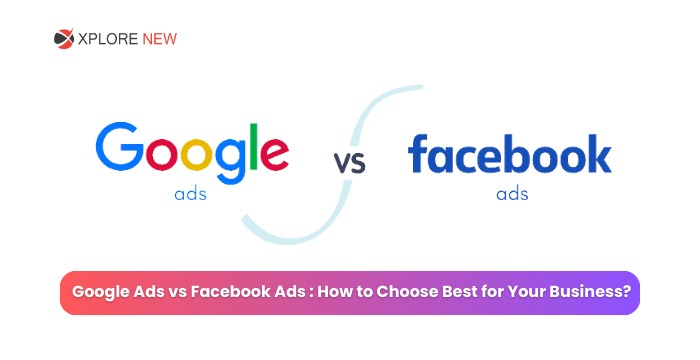
In the ever-evolving world of digital marketing, choosing the right advertising platform can be challenging. Two of the most popular options, Google Ads vs Facebook Ads, each offer unique benefits. But how can you tell which one is right for your business In this blog, we’ll break down the features of both platforms to help you make an informed decision. At Xplore New, we specialize in digital marketing solutions that help businesses grow, so read on to see which platform might best fit your goals.
Google Ads vs Facebook Ads
Google Ads, also known as Google AdWords, is an online advertising platform that allows businesses to display ads on Google’s search engine results pages (SERPs) and its wider network. With Google Ads, businesses can bid on specific keywords, and when users search for those terms, ads are shown above organic results. This makes it ideal for businesses wanting to capture users actively searching for particular products or services.
Advantages of Google Ads:
- High Intent Audience: Google Ads allows you to reach users who are actively searching for solutions, making it perfect for lead generation and conversions.
- Wide Reach: With access to Google’s vast search network, your ads can appear across different websites and partner networks.
- Keyword Targeting: Through keyword bidding, Google Ads lets businesses directly target specific search queries.
Exploring Facebook Ads
Facebook Ads is a social media advertising platform within Meta (Facebook and Instagram) that allows businesses to reach users based on demographic, interest, and behavioral data. Unlike Google Ads, which is focused on search intent, Facebook Ads targets users based on their interests, online behaviors, and demographics.
Advantages of Facebook Ads:
- Precise Audience Targeting: Facebook Ads offers granular targeting options, such as age, location, interests, and behaviors, helping you reach highly specific audiences.
- Visual and Engaging Ad Formats: Facebook supports various ad formats, including carousel ads, video ads, and image ads, which help in creating engaging content.
- Social Engagement: As a social platform, Facebook allows users to like, comment, and share ads, leading to increased brand awareness and engagement.
Key Differences: Google Ads vs Facebook Ads
When comparing Google Ads vs Facebook Ads, the choice comes down to your business goals, target audience, and the type of engagement you seek.
| Feature | Google Ads | Facebook Ads |
| Audience Targeting | Keyword-based targeting | Demographic and interest-based targeting |
| Ad Formats | Text ads, shopping ads, video ads | Image ads, video ads, carousel ads |
| Best for | High-intent users, lead generation | Brand awareness, audience engagement |
| Cost Structure | Pay-per-click (PPC) | Pay-per-click (PPC) and CPM (cost-per-thousand impressions) |
Google Ads vs Facebook Ads For your organization
Choosing Google Ads vs Facebook Ads depends on your marketing goals and budget. For businesses focusing on lead generation and targeting users with high intent, Google Ads is a strong choice. However, if your goal is to build brand awareness, engage users, or target specific demographics, Facebook Ads may be more effective.
Conclusion: Let Xplore New Guide Your Digital Advertising Strategy
Selecting between Google Ads vs Facebook Ads is crucial for your business’s success. Both platforms offer unique advantages, so the choice should align with your audience and goals. At Xplore New, we offer tailored digital marketing solutions to help your business grow. Whether you’re looking to run high-converting Google Ads or engaging Facebook campaigns, we’re here to guide you every step of the way.
- advertising agency in hyderabad, best digital marketing agency in Hyderabad, best seo agency in hyderabad, digital marketing agency in Hyderabad, digital marketing companies in Hyderabad, digital marketing services in hyderabad, social media marketing agency Hyderabad, top 10 digital marketing companies in Hyderabad, top digital marketing companies in Hyderabad
More from our blog
See all postsRecent Posts
- MVP Development Guide: Launch Your Startup Product in 90 Days February 12, 2026
- How to Build a SaaS Product from Idea to Launch in 2026 (Step-by-Step Guide) February 12, 2026
- Influencer Marketing Trends to Know in 2025 January 9, 2025


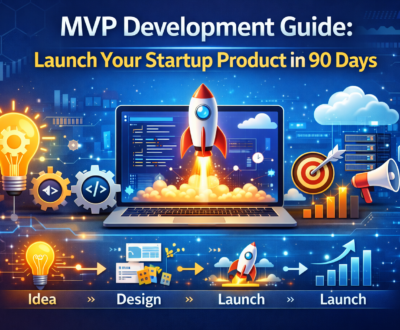

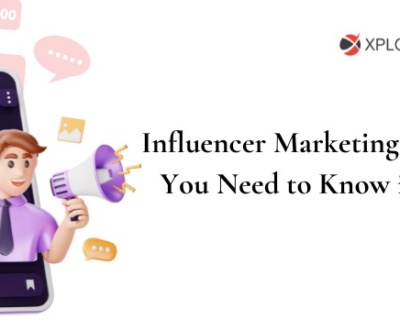
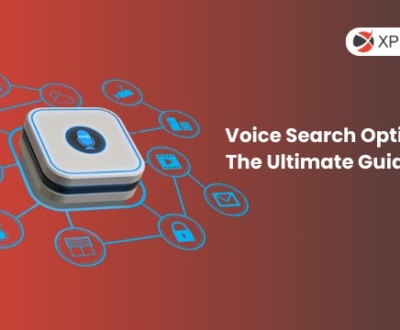

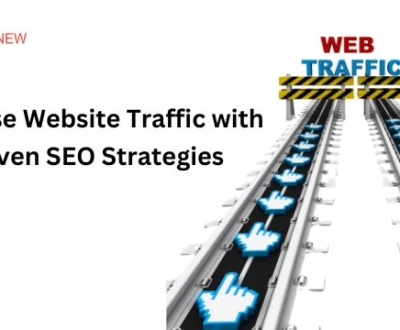
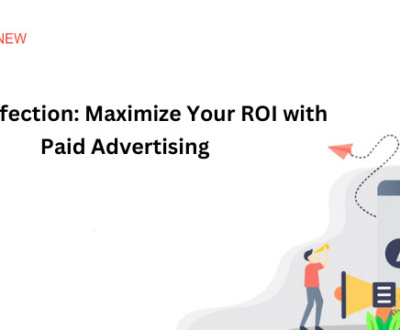


 by XploreNew
by XploreNew